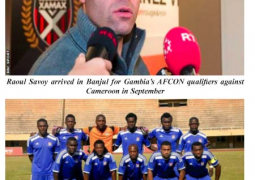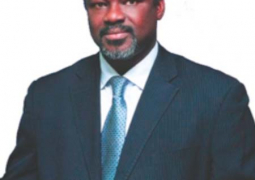Who is the liaison between the Office of the President and the media? Apparently, there is none. In a front-page story, Foroyaa (12-14 December 2008) screams: "No Press Corps For The President!" And then follows it up with a rider - "Unbelievable Indeed". Then in the body of the story, the Foroyaa editor relates how he unsuccessfully tried to lay hands on a copy of the presidential address during the Eid-ul-Adha. "In the process he was informed that there was no press or public relations officer responsible for the dissemination of information at the Office of the President. An effort was made to contact one of the permanent secretaries whose number was known but the phone kept ringing without answer. The permanent secretary at the Department of State for Communication, Information and Information Technology was called but at the time he was out of his office. An attempt to talk to the Secretary of State [for Communication, Information and Information Technology] was unsuccessful," the report states.
Why has it taken so long for the post of press officer and that of director of press and public relations to be filled? These are important positions, which help the Office of the President to explain or defend its actions and inaction. There is no known presidency in the world that has no press office to manage its communications.
We have always maintained that it is counterproductive for the authorities to sideline the independent media in the drive to move The Gambia forward. When the media is starved of information, it tends to speculate, often to the disadvantage of the state. Selecting a section of the media for preferential treatment is even worse for the authorities in the sense it denies their messages the benefit of reaching a diverse audience or readership. When a national message is disseminated only through a section of the media, it is received with a grain of salt, possibly seen as propaganda.
Seriously, it is high time professionals were recruited to run the press office at the Presidency. The candidates for these jobs should be people who understand the mindset of the journalist. They ought to know that the journalist is trained to be vigilant, inquisitive, assertive and forthright. Understanding the journalist's temperament is key to serving well as an interface between the Presidency and the media generally. That way, the media would not be treated with contempt. These people should distribute press releases to all the media houses without bias. They should invite the independent media to state functions without bias. They should be accessible to all journalists without bias and be forthcoming with clarifications on issues of national importance with candour. We reiterate that this is important in order to avoid misunderstanding and misinterpretation of government policies and programmes.
We hold that the independent media has no grudges against the state. In reporting news, the journalist is obliged to leave out their judgements, reporting only what they see or are told, where it happened, why it happened and how it happened. In its capacity as a reporter, the journalist does not pass judgement. But comments are free, as anyone can infer anything from a news story. But then again, we must respect divergent opinions, as our critics are not necessarily our enemies. This is what Bob Marley meant when he said, "Your best friend could be your worst enemy, and your worst enemy your best friend."
"You only have power over people as long as you dont take everything away from them. but when you've robbed a man of everythin he's no longer in your power - he's free again."
Solzhenitsyn, Alexander



